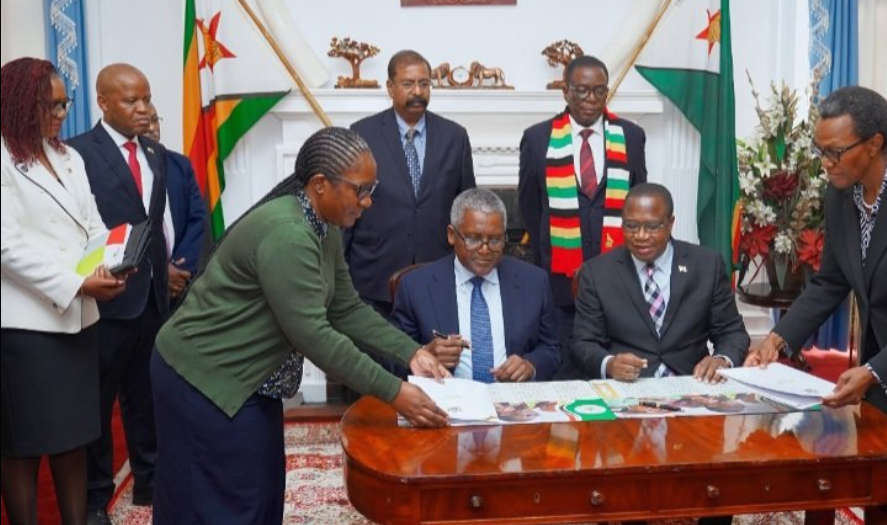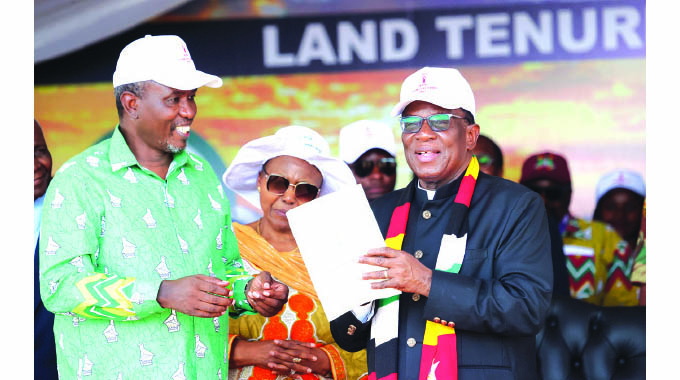A DEAL that would have seen a foreign investor snap up a 35% equity in the Agricultural Bank of Zimbabwe (Agribank) collapsed after a wrangle for control of the bank erupted between two government ministries.
The Ministry of Agriculture, which owns a 50% stake in the bank, blocked attempts by the Ministry of Finance, which owns the other 50%, to offload the shareholding amid indications the former wants to wrest control of the bank from Treasury.
Sources close to developments at Agribank said the bank's turnaround was in jeopardy following the blockade by the Agriculture ministry, which has prevented the continuation of discussions with a potential strategic partner.
A Danish financial institution, which successfully invested in and turned around an agricultural institution in Tanzania, had expressed interest in using a similar model to invest in Agribank.
According to the sources, the deal would be consummated by the Finance ministry's relinquishing of 35% equity to the Danish investors in exchange for cash and technical expertise.
However, the deal is in jeorpady as Agriculture minister Joseph Made is keen on wresting control of the bank from the Finance ministry.
Agribank is pinning hopes of meeting its capital requirements on the anticipated equity uptake by the Danish financial institution.
Made feels his ministry should have control given the critical role it plays in agriculture.
His Zanu-PF party has criticised Finance minister Tendai Biti for failing to support agriculture adequately despite Treasury last year injecting US$10 million into the bank.
Agibank CE Sam Malaba however could not confirm whether the deal had fallen through.
"We have a process in place through which foreign investors will be invited to participate in the bank. The process will be an open tender to all potential foreign partners.
I cannot say that we have reached a stage yet where we can conclude a deal with any foreign partners as government still has to approve the draft information memorandum that will be floated to suitors," Malaba said.
"We have however received and continue to receive offers for partnerships but there is a process," he added.
Asked which of the two ministries would most likely relinquish equity to foreign partners, Malaba could only say " Government will decide."
The bank's losses widened to US$5,6 million as at year end 2012 from US$0,3 million incurred in 2011.
According to a statement accompanying the bank's results issued by the institution's chairman Sij Biyam, the losses were due mainly to a disproportionate increase in loan impairment charges which topped US$3,8 million during the year under review.
"The impairment charges reflect loan exposures to a few large corporate entities which are under judicial management," Biyam said.
The bank's capital amounted to US$20,43 million as at 31 December 2012, against the minimum regulatory capital requirement of US$25 million.
Last year the bank received US$10 million from government, significantly boosting its prospects of meeting capital requirements.
"The 2012 loss is a result of a combination of factors which the bank faced during the year, in the main, inadequate capitalisation and failure to attract meaningful deposits against higher operating costs," Biyam said.
The bank's operating expenses grew from US$19,3 million in 2011 to US$22,4 million in 2012, whilst income rose marginally to US$19,98 million from US$19,33 million in 2011 on the back of a modest rise in interest income, which increased nominally from US$8,9 million to US$10,5 million in 2012.
- fingaz
 Zimbabwe launches new airline
Zimbabwe launches new airline  Hichilema meets Chivayo
Hichilema meets Chivayo  Millions celebrate Diwali festival in India
Millions celebrate Diwali festival in India  SA bitcoin firm mulls Zimbabwe listing
SA bitcoin firm mulls Zimbabwe listing  Gold edges up as traders await guidance
Gold edges up as traders await guidance  Airlink applies for Lanseria to Harare, Bulawayo route
Airlink applies for Lanseria to Harare, Bulawayo route  Young Investment Professional (YIP) Graduate Programme 2019
Young Investment Professional (YIP) Graduate Programme 2019 










 Young Investment Professional (YIP) Graduate Programme 2019
Young Investment Professional (YIP) Graduate Programme 2019
Editor's Pick